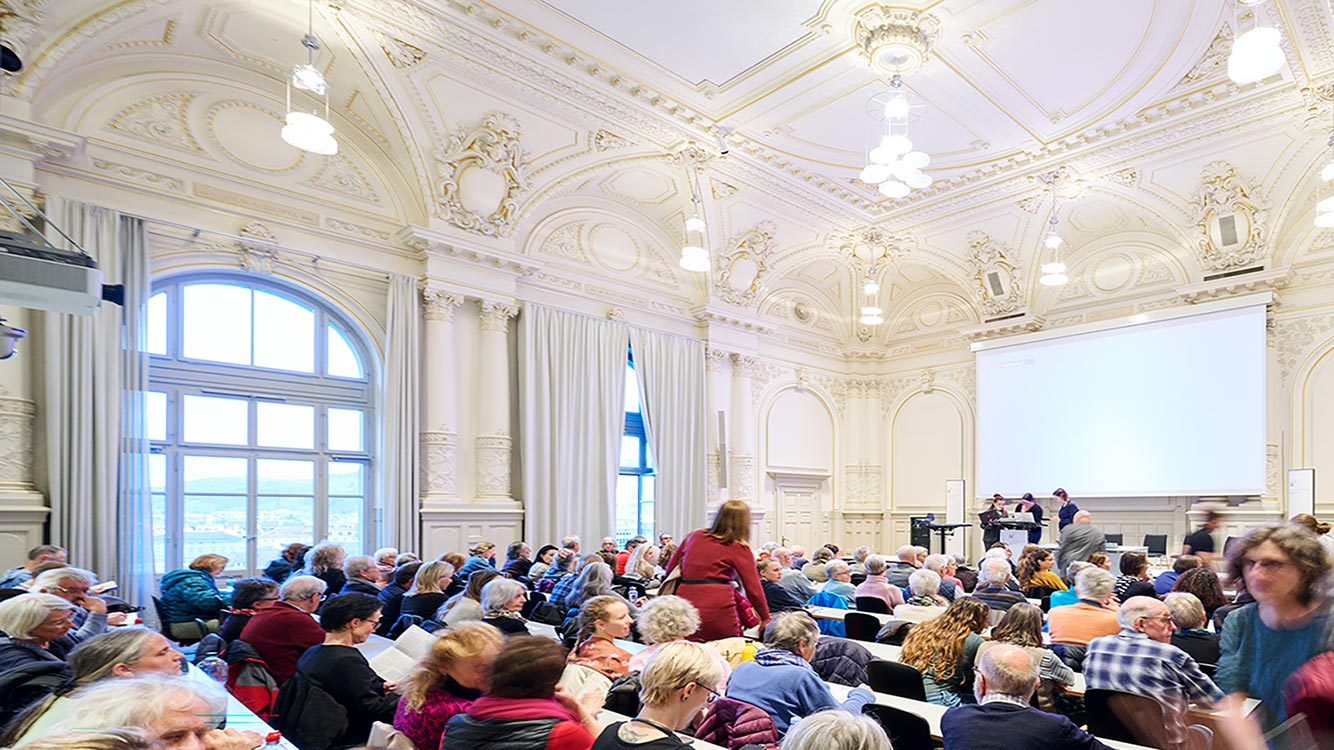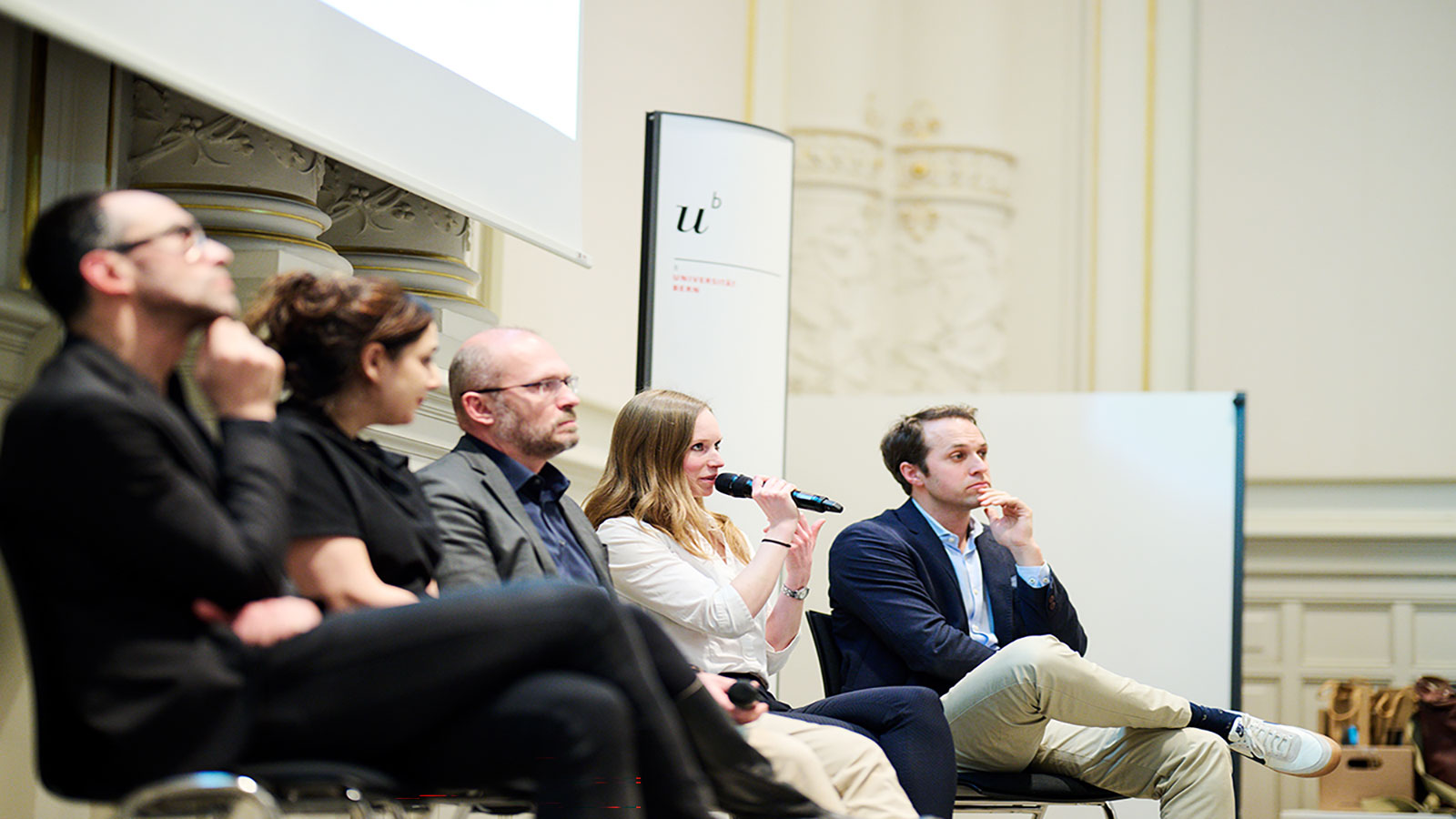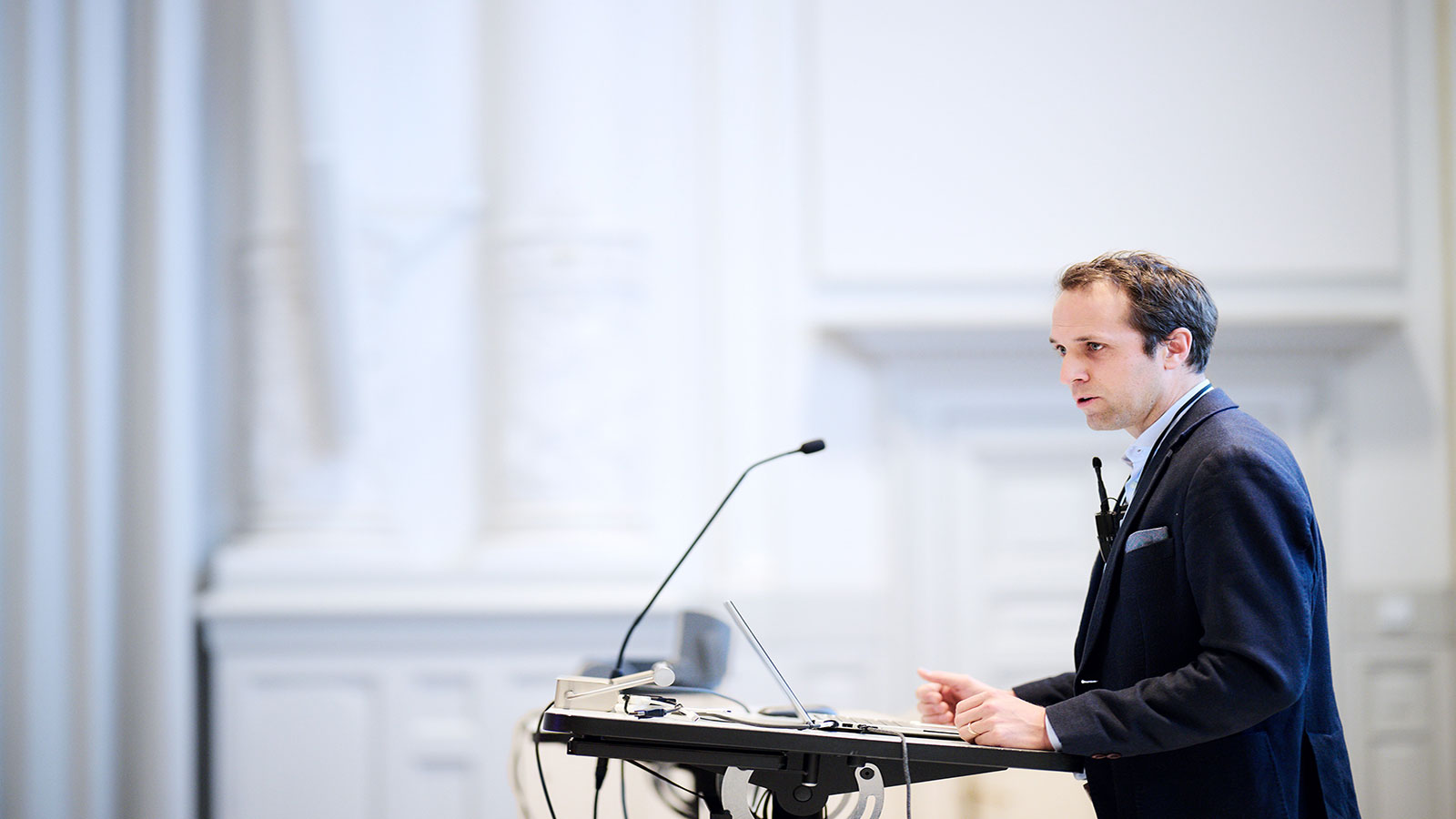Brain Week Bern 2025 came to its traditional conclusion with a panel discussion on the topic of «Myths & Truths». In the well-attended Alte Aula of the University of Bern, a wealth of interesting information on brain health was presented and myths and misinformation were dispelled.
Brain Week 2025, University of Bern
Brain Week is an international series of events dedicated to educating the public about the brain, its functions and diseases. Brain Week in Bern is organized by the Clinical Neurosciences (CNB) at the University of Bern. It offers a diverse program of lectures, film screenings and panel discussions aimed at a broad audience – from professionals to interested laypeople. The topics range from memory and consciousness to mental health and current advances in brain research.
Final evening with panel discussion
As in every year, Brain Week Bern concluded with an open evening panel discussion. This year's event took place on Thursday, 13 March 2025, in the early evening. Five doctors from the fields of neurology, neurosurgery, neuropsychiatry, psychology and sports science were invited to speak in the well-attended Alte Aula of the University of Bern. The entertaining evening was hosted by Dr. Maria Stein, a private lecturer and specialist psychologist in psychotherapy.
The topics were wide-ranging: From sleep health (Prof. Dr. Leila Tarokh) to the development and processing of pain (PD Dr. med. Andreas Nowacki) to balance (Dr. Corina Schöne), the connection between movement and mental health (Prof. Dr. Claudio R. Nigg) and memory performance and training (Prof. Dr. med. Bogdan Draganski) – a wide range of exciting insights were presented.
It was an enriching evening, marked by many interesting discussions and conversations.
Contribution from the Department of Neurosurgery
Andreas Nowacki, from the Department of Neurosurgery at Inselspital, Bern University Hospital, spoke on the topic of «The origin of pain». In his short presentation on the myth that «pain always has an organic origin», he showed that this is not the case in reality, as numerous factors contribute to the development and processing of pain, which can sometimes make therapy very difficult.
While most pains are triggered by actual tissue damage (e.g. cuts, inflammation, fractures), neuropathic pain is caused by damage to or malfunctioning of the nervous system. As an example, Andreas Nowacki mentioned intractable pain after a stroke or phantom limb pain in an amputated limb. Especially in the case of chronic pain, several factors often play a role, including an altered pain processing in the brain. This means that pain can be perceived as real even without any recognizable physical cause.
Related News
- Truth or myth – Brain week 202419.03.24 - At the end of Brain Week, provocative theses were discussed by leading figures in neurosurgery and neurology from Inselspital, Bern University…
- Is a robot a better surgeon?23.03.23 - Robotics has long since found its way into medicine. Robotic surgery is part of everyday surgical practice. But can humans be replaced entirely?



